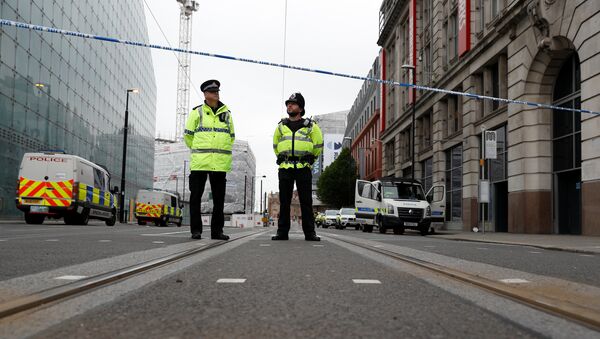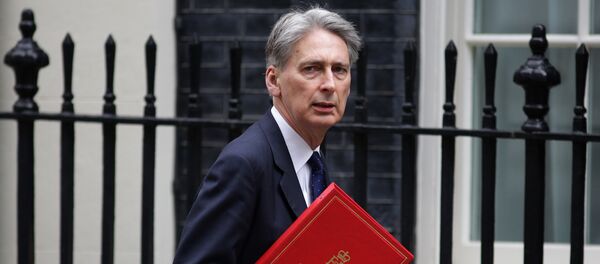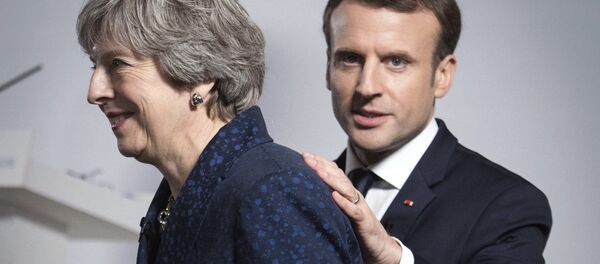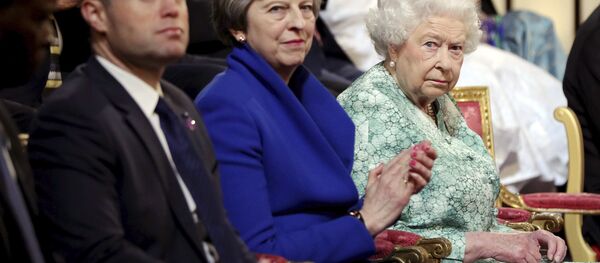Although I suspect most of the bobbies on the beat voted to Leave, their hierarchy is in charge of Project Terror, to influence how Parliament votes on the Withdrawal Agreement.
Cressida Dick, chief Metropolitan Commissioner, says 'crashing' (language!) out of the EU without an agreement would mean having to replace structures, such as access to databases and agreements on arrest and extradition, which could threaten the police's crime-fighting capability.
She adds there would be "very real operational consequences if there are no alternative arrangements in place around exchange of material and people by way of a European arrest warrant making it harder to tackle cross-border crime".
Security minister Ben Wallace said that "no matter how effectively we prepare", 'crashing' (language, again) out of the EU without an agreement would immediately cut the UK out of vital intelligence databases.
READ MORE: 'Cracks' Bedevil Irish Border Issue as Talks Continue Mere Weeks Before Brexit
Asked if she was suggesting the consequences meant the UK would be less safe, Ms Dick readily admitted: "We can talk about what might happen, but of course while there are so many unknowns it's very hard to predict."
Our home secretary, Sajid Javid, said he could not argue the deal "is perfect in every sense, and necessarily contained compromises, if it were rejected, a 'cliff-edge' (language!) exit could cause significant repercussions".He has also warned Brussels that weakening security co-operation with the UK after Brexit would be "wrong and reckless" and would help terrorists.
In the midst of all this scaremongering, let's take a look at what we are actually saying no to and what we have instead.
For one, the exchange of information between police and intelligence agencies, the control of the external borders and the fight against terrorist recruitment all fall under different levels of EU competency which makes it nearly impossible to streamline.
As a solution, Europol, the EU's police agency was created to enable enhanced intelligence sharing and cooperation between national law enforcement and intelligence agencies.
However, the exact notion that keeps the EU from ever becoming a cohesive union hampers the functioning of this entity as well, namely the reluctance from Member States to give up their sovereignty in this case, in intelligence gathering and ensuring national security.
Europol's role was also limited to being a tool in policy-makers' hands, a body that responds to what Brussels wants, not an independent EU agency that has the power to act on its own.
READ MORE: Henry Bolton on Brexit: Government Has Failed Appallingly to Plan and Prepare
Therefore, the problem is two-fold: on the one hand Member States lack sufficient trust to share their best intelligence with Europol in the first place and actually question the added value that the agency can contribute. On the other hand, Europol's inability to provide this added value comes from its lack of authority and Member States' distrust.
An article, 'Counter-Terrorism, Security and Intelligence in the EU: Governance Challenges for Collection, Exchange and Analysis' written by Monica Den Boer argues that the only Member States who could benefit from an EU-wide intelligence sharing cooperation, are smaller states, due to their limited budgets or mandates in the field of international intelligence gathering.
Den Boer points out, that the majority of counterterrorism activities are still performed on a bilateral level between individual Member States, therefore intelligence sharing is limited to this level as well.
In the months before the terrorist attacks in Paris, Belgian law enforcement had identified some of the men who carried them out as radical Islamists. They had questioned and monitored them. But they never detained them. Nor did the Belgians inform French authorities of their concerns.
Louis Caprioli, who ran French intelligence for 20 years points out that Belgian authorities could have signalled to the French that these attackers would threaten France's security and that the shortcomings in cooperation between national police and intelligence agencies across national borders in the EU allow terrorists to roam freely.
We would all assume that considering the dire data that more Belgians have joined extremist militant groups in Syria and Iraq than citizens of any other EU state and that about five percent of Belgium's population is Muslim, Belgium would be more on top of its game.
Belgium's unusual administrative and law enforcement systems complicate cooperation on counterterrorism not only with other countries but within Belgium itself.
READ MORE: German Gov't Cuts 2019 GDP Forecast Amid Weak Business Sentiment, Brexit Fears
The country's police is Balkanized along linguistic and regional lines. The three regions, as well as the 19 "communes" in the capital, all operate in their own languages and stick to working in their own "backyards", often times reluctant to sharing key information with one another.
"When it comes to European anti-terrorist policy, coordination does not exist," said one senior European official. "When it comes to security, it is 95 percent the responsibility of the member states."
And here comes the good news: when we withdraw from the heavily flawed Europol we can instead revert to Interpol's pre-existing practices.
Interpol is the world's largest international police organisation, with 194 member countries.
Their role is to enable police AROUND THE WORLD to work together to make the world a safer place.
Interpol provides the member countries with instant, direct access to a number of criminal databases. These contain millions of records, contributed by countries across the world.
Now you see why I don't feel so scared of missing out on the EU's "protection". We don´t require an EU level cooperation in Europol, which is fundamentally flawed to start with. What we need is countries effectively sharing information on a global level and on a bilateral basis and Interpol's not a bad trade-off, no matter how we look at it.
READ MORE: Prof on Possible No-Deal Brexit: It Could Be Process of Disgruntlement, Disorder
If a country in the EU can't even get its act together internally (not to mention the migrants who invade our borders on a daily basis, unchallenged), such as the case is with Belgium, no amount of EU-level cooperation will help to solve this. It´s all about intensive bilateral or perhaps global multilateral cooperation. We should not have the EU limit us in this field, as crime should be tackled globally.
I agree the threat posed by British citizens arrested under the EAW are frightening, particularly if you are concerned about human rights. The detentions and trials without evidence are totalitarian and the conditions in jails such as Romania and Greece are inhuman as well as these countries having some of the worst violations over human rights. Even Ireland halted extraditions to Romania.
Again, I repeat, there is nothing to fear from a WTO no deal exit on 29th March.
Views and opinions expressed in the article are solely those of the author and do not necessarily reflect those of Sputnik







